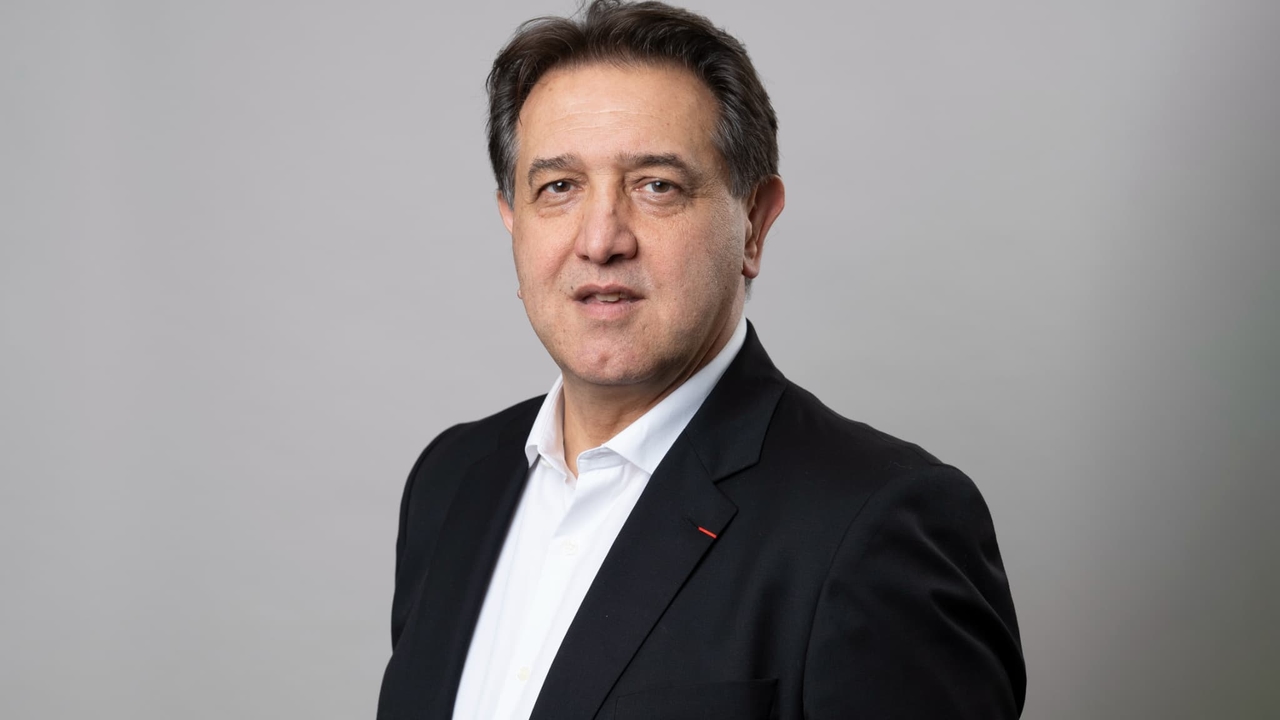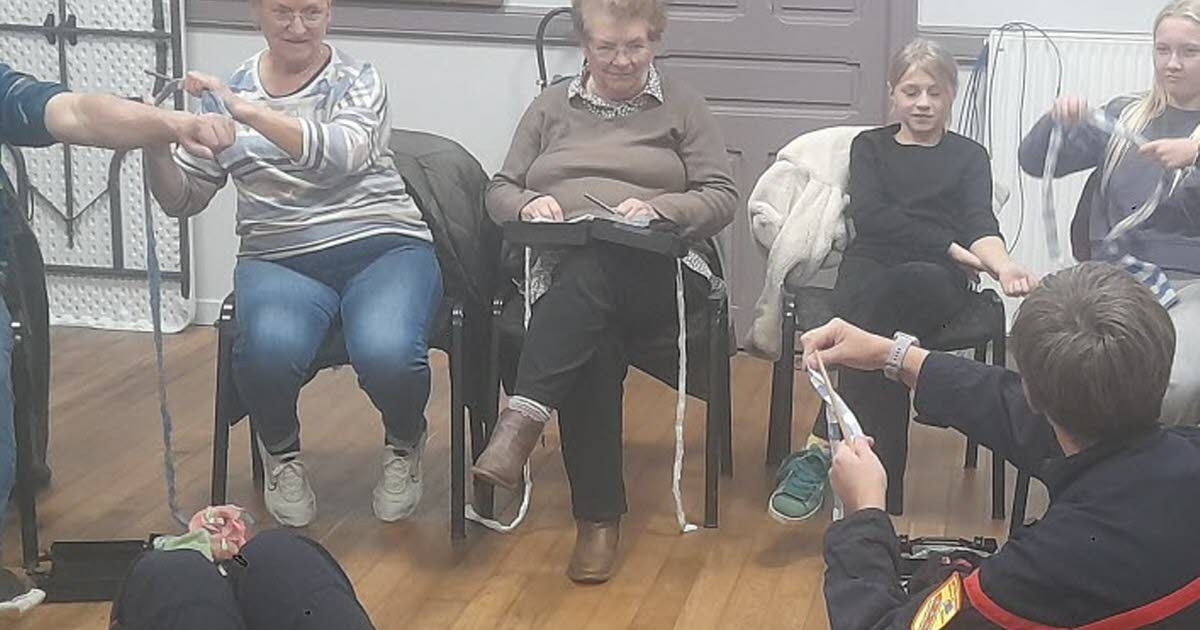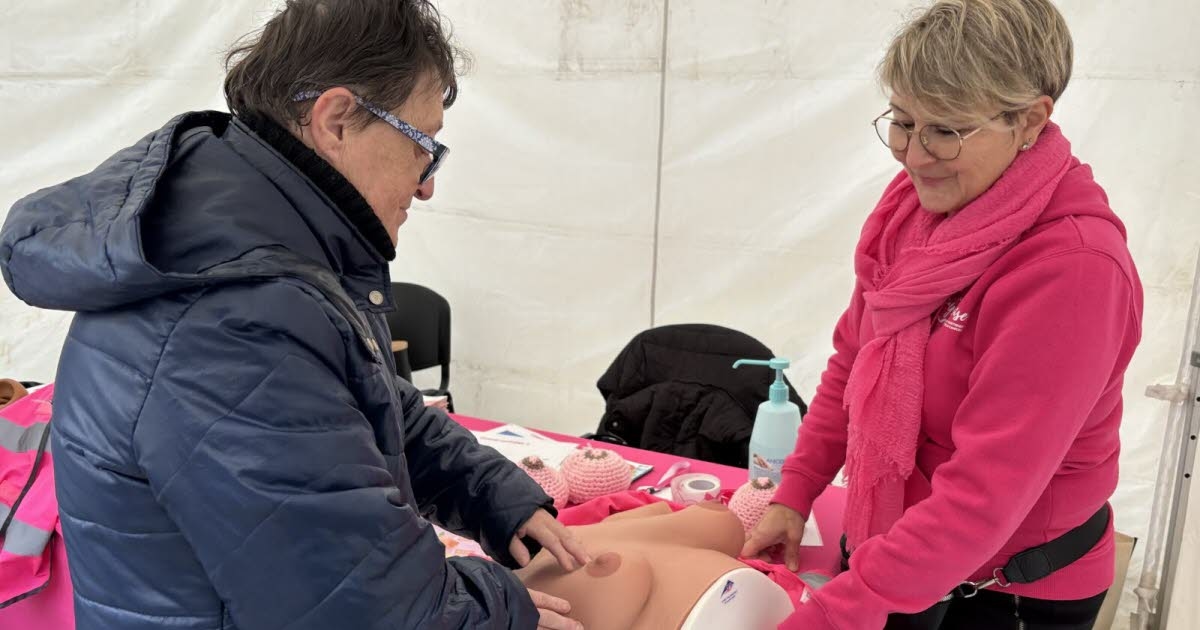"How much do lives lost cost?": The French Medical Association deplores the healthcare cuts included in the social security budget.

Healthcare is under attack from all sides. The Social Security financing bill will significantly reduce funding for this sector, with Health Minister Stéphanie Rist describing it as a "difficult" budget. This €7 billion austerity measure will be examined in plenary session at the National Assembly this Tuesday, November 4th.
Stricter rules on sick leave, caps on excess fees, deductibles... For healthcare professionals, the proposed measures could ultimately prove costly. "We understand perfectly well that everyone is going to be affected," Stéphane Oustric, president of the National Council of the Order of Physicians, told BFMTV and BFM Business, with a touch of irony. In an exclusive interview, the head of France's doctors doesn't hide his concerns... and his frustration.
" The main problem with this Social Security Financing Bill is that it is a bit complicated to have a forward-looking vision: yet, this was initially the goal of the National Health Insurance Expenditure Target (Ondam), and therefore of the Social Security Financing Bill.
The goal was that every year, all projects or activities that weren't working should be stopped and, conversely, that national funding should be allocated to new healthcare initiatives that could have a structuring effect on both professionals and citizens. But today, it seems more like simply a matter of increasingly restrictive accounting practices, and we understand that everyone is going to be affected. First and foremost in public hospitals, but also in private facilities and general practitioners.
"One can always say, 'does it improve anything?' The problem is that this can only be seen in a health system that promotes an interest in prevention and public health.
Prevention is something no politician likes because it requires a long-term, consistent commitment. And today, politicians are focused on the very short term: who will be elected in the March 2026 municipal elections? What impact will this have on the senatorial elections? Who or how will I run in the 2027 election? That's the perception we have today. You can imagine that if we had a political vision for public health, we would be questioning why we've had 10 Ministers of Health in 6 years?
"What's important is that we can truly talk about 'tact and moderation' (that is, that the doctor acts appropriately towards patients, for example by adjusting their fees according to their social and economic situation, or by applying third-party payment to avoid them having to pay upfront, editor's note), provide clear and honest information to the patient, and guarantee informed choice to obtain consent to treatment. All these elements are part of professional ethics. And when there are breaches, it's the role of the Medical Council to intervene."
Now, it's important to understand that behind a surgeon's fee, for example, there are the skills, techniques, equipment, and liability they assume. For instance, when they operate on an appendix and the patient files a complaint because they don't like the scar. For the patient, filing a complaint is free, but it can be very costly for the doctor. And this medical liability after a procedure has long-lasting consequences: who would accept 30 years in prison for an appendectomy costing €288 (the price of the procedure without additional charges, editor's note)? Let's get real.
" Sick leave is no laughing matter. Every day I see people with increasingly complex illnesses. I have patients with three cancers at the same time. It's becoming complicated, and doctors are under societal pressure. This is unacceptable. We must maintain our freedom to practice medicine with guaranteed professional independence and confidentiality, because that's what we must guarantee above all to our patients."
This limitation on the duration of sick leave can help and serve us. Five years ago, I submitted a report on daily allowances, commissioned by Prime Minister Édouard Philippe. I recommended adding two boxes to the sick leave forms. The first was to require a consultation with the occupational physician.
Let's take the example of someone who is unhappy in a large company. I refer them to the occupational health physician, simply describing a reactive anxiety-depressive state with a request for comprehensive support and a letter of explanation. The occupational health physician then examines them and can decide whether or not to reclassify the sick leave as a work-related accident.
And the second option I recommended was the possibility for the prescribing physician to be contacted again by a medical advisor from the primary health insurance fund. In both cases, the traceability of my request on the Cerfa form corroborates my professional competence and my responsibility for the care."
"I think it's normal. Sick leave remains a social right: when you're sick, you can take time off and receive compensation, so it's a social benefit that must be regulated and protected. Simply put, the health insurance fund needs to educate people, and there will be oversight, which is normal. And oversight and education don't mean blanket or systematic sanctions, especially when the social model is failing."
In my opinion, we don't sufficiently value therapeutic part-time work (TPW). And the company, despite suffering from short sick leaves, isn't flexible enough regarding TW. Depending on the illness, we could target and value half-days for providing care, promoting teleworking or other options when possible, rather than taking 15 days off. But what do we say every time? It's too complicated to implement. That's the problem; we can't completely tailor the response because each case is unique and specific, and therefore becomes complicated.
And on this point, some health insurance schemes are not fully responsive, such as the civil service for example; some companies cannot or do not want to implement these arrangements (therapeutic part-time work, teleworking), whereas even a short sick leave, such as 15 days in the civil service, completely disrupts the functioning of the department or establishment.
"No, I am against mandatory medical objectives without educational support. In fact, making them mandatory would not change much since in practice, when a doctor refuses a mandatory medical objective, the health insurance fund can then impose a prior agreement procedure. That is to say, each prescription for sick leave is subject to a check before triggering the payment of daily allowances to the patient."
"I'm not a tax collector, as far as I know? I dedicated 10 years of my life to medicine at the university, 7 years to perfecting my teacher training. I'm not here to collect taxes for a political choice that is completely beyond our control. Are we, the ugly ducklings, supposed to go around asking people for these taxes? No, wait, we're getting out of touch. We need to come back down to earth. We are doctors, we are here to help as many people as possible. To improve our practices, we need less administrative work."
"When you are a healthcare professional, you shouldn't even have to ask yourself the question. Vaccination is, for me, the only medication where the benefits far outweigh the risks, which do exist, but are very minor."
Just because we're doctors doesn't mean we're immune. However, we mustn't misunderstand the message; this isn't just about vaccinating healthcare workers. For the flu, for example, all patients must also be vaccinated, especially those in nursing homes, patients with chronic illnesses, cancer, or those who are frail, vulnerable, or disabled. Everyone, without exception.
We mustn't forget the scientific message for healthcare workers: 'You must be, and you will be, protected by vaccination; you won't be 'incapacitated,' and therefore you will be ready to continue caring for people. Moreover, the professional body recently stated that from now on, we will intervene and file complaints against the false messages spread by anti-science activists, anti-vaxxers, and conspiracy theorists, whether they are doctors, healthcare workers, or others.'
"Diluting a coherent and clear message regarding the organization of vaccination has completely confused the population. When you receive a voucher for flu vaccination with only a mention of our pharmacist colleagues… This is terribly confusing for patients and certainly for doctors."
What did this lead to? A deliberate public health disaster. It diluted the scientific message surrounding vaccination. You can't just become a doctor overnight; we're not mere technicians. Our profession also encompasses prevention and the holistic care of a person in all their health, biopsychosocial dimensions. I don't understand how other professionals could have been authorized to perform this procedure, which is part of comprehensive medical care, without any intelligent, coordinated, or locally organized approach decided upon by the attending physician—general practitioner, pediatrician, or other.
This change was implemented for purely accounting reasons. But what is the cost of the lives lost?
I strongly and respectfully request that each doctor, if they wish, have access to all vaccines in their fridge, as was the case during Covid, to administer them as soon as possible during a general consultation, such as DTaP-type vaccines, Gardasil for papillomaviruses… This is an amendment that we support for the 2026 Social Security Financing Bill.

"This was a measure to save the former Prime Minister , wasn't it? We're not objects; you can't say that coming for two days is going to save a place. In these places where there's nothing left, two days is useless. We need to organize ourselves, preferably in 15-day periods. Above all, we need to ensure continuity of care, not just spread the resources thinly."
Next, we need to raise awareness. We have to get rid of the idea that there are doctors on every street corner. And we need to be more rational; we don't go to the doctor like we used to, every two weeks, every month, just to renew prescriptions. Now we'll prescribe for three months, six months, or even a year, and say we'll see you very soon if things aren't going well.
Similarly, for a dermatologist appointment, for example, it is necessary to be able to space out all appointments every five years or more, depending on the case, and not to panic if it is not possible to have a check-up every year."
"We know it's counterproductive. It risks leading to the abandonment of medicine. For me, there needs to be a total rejection of coercion; these things won't work, we know that very well. The solution is to value the profession. The question is, how do we help the doctor who is going to set up practice in a region, a doctor who, upon arriving at 7 a.m., already has 30 patients sitting in his medical office?"
"No, I think we need an understanding of the territories, something we've been asking for for a long time. And definitely not systems like specialized unscheduled care sites, that's ridiculous. We can't tell young people to stop dealing with complex pathologies, seniors, children, and only do accident treatment, rheumatology... We know that this solution would cost three times as much. And what service would that provide to the population?"
"The aspect of palliative care does not pose a problem for me. On end of life, we have very clear elements. Even if the medical population evolves a little on these elements, which we quantify with questionnaires, there are elements on which we cannot go back.
In other words: the doctor is not there to give death. It's not possible, it never will be. There will always be a conscience clause, even a double conscience clause, which must be enshrined in law and not simply in our code of ethics. The doctor must be able to exercise their conscience clauses. They can say to themselves, "I've heard, I'll provide the information I have, but I don't want to participate."
"Naturally, many things will evolve in our practice. An article will be published to remind doctors that just because there are new tools, ethical principles should not be neglected."
"From the moment of my appointment, I set out three principles. One of them is very clear: zero tolerance. This cannot be decreed; it is my life's commitment. We are in the process of completely acculturating the professional body to criminal proceedings. I have a special advisor by my side, a former public prosecutor, who is on secondment from the Ministry of Justice for three years. From now on, it's zero tolerance, so it means filing a civil suit after a complaint or report is filed, continuously and in every department, supported by our departmental councils."
"There are many of them. Too many. And for me there is no other solution than a permanent ban on practicing. A doctor has the ability to cross the boundary of intimacy, whether physical or psychological, so it is impossible to compromise.
My solution is the creation of a certificate of good character, which every doctor will be required to display in their office. It will include a review of their criminal record extract (B2), the FIJAIS-V sexual assault file, as well as all final convictions and pending legal proceedings. This document will be updated every three years. The Medical Council is the only body authorized and obligated to issue this certificate; it commits to producing it, and it must be displayed in all waiting rooms.
At any time, when the Medical Council is automatically and systematically informed by the public prosecutor's office, we will know that proceedings are underway, and we will act. We will change a doctor's certificate of good standing without any hesitation.
The Order wishes to include with this certificate the confirmation that the professional has completed their certification process. This periodic professional skills certification process is crucial for the profession, but especially for patients. In the event of a failure to complete training and periodic certification, the Order will intervene to ensure that each physician receives the necessary training through their professional college and via the transitional measure of "professional inadequacy."
Today, it's zero tolerance. There are only good doctors, excellent doctors, so that the 0.1% of 'ugly ducklings' don't tarnish the 99.9%. We will be there, the Medical Council will provide the necessary resources. That's the meaning of my commitment."
BFM TV





